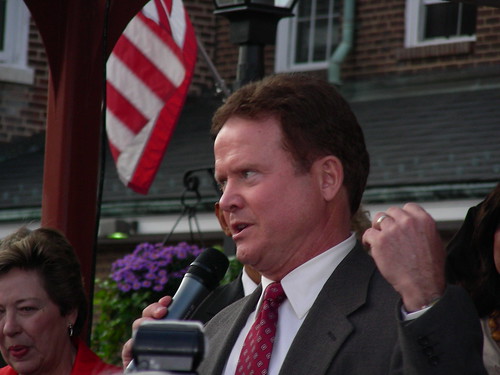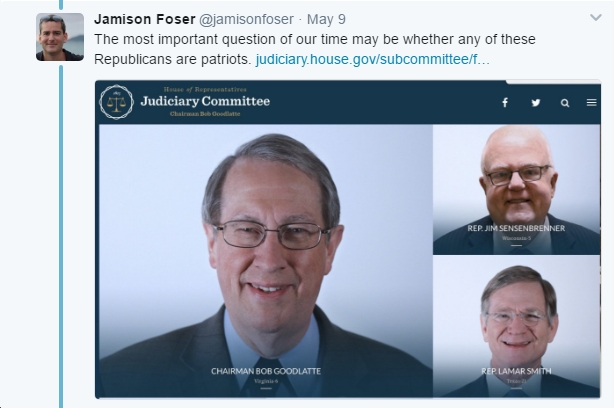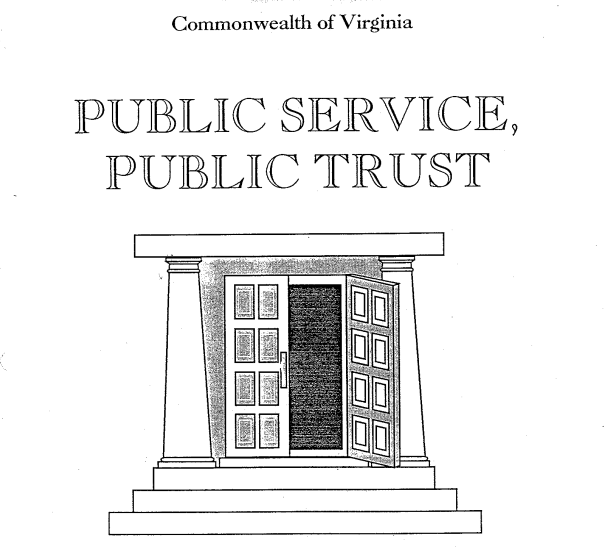 Ignore the article itself, which is typical claptrap posing as “analysis” by the right-wingnut (although they disingenuously claim not to be) Real Clear Politics website. The author himself, David Paul Kuhn, has been called “a noted analyst of and sometimes advocate for the political views of white men.” Believe it or not, Kuhn actually wrote a column for Politico in May 2008, postulating a John McCain “blowout” win over Barack Obama, “by a margin exceeding President Bush’s Electoral College victory in 2004.” Uh huh.
Ignore the article itself, which is typical claptrap posing as “analysis” by the right-wingnut (although they disingenuously claim not to be) Real Clear Politics website. The author himself, David Paul Kuhn, has been called “a noted analyst of and sometimes advocate for the political views of white men.” Believe it or not, Kuhn actually wrote a column for Politico in May 2008, postulating a John McCain “blowout” win over Barack Obama, “by a margin exceeding President Bush’s Electoral College victory in 2004.” Uh huh.
Anyway, putting all that aside, Jim Webb actually has some interesting points to make in this article, although the title (“Why Reagan Dems Still Matter”) is a bit jarring. First off, I strongly agree with Webb that the Democratic Party needs to get back to its “Jacksonian democracy” roots (side note: the author of this piece mistakenly wrote “Jeffersonian democracy” in his first draft, then fixed it), a party that “very clearly represents the interests of working people.” In my view, and it seems that Webb and I are on the same page here, the Democratic Party has gotten away from this and become a party that too often appears more concerned with serving corporate interests and the upper middle class. Isn’t that what we have a Republican Party for?
Second, I strongly agree with Webb that the Democratic Party has become too “transactional” and has “evolved too strongly into interest groups rather than representing working people, including small business people.” This is one of the main reasons I consider myself more a “Teddy Roosevelt Progressive” than a “liberal” in today’s sense, because I believe more in an overarching set of rules that advance everyone’s “life, liberty and pursuit of happiness”, that keeps the environment healthy for everyone, that – as David Sirota puts it – “focus[es] on using government power to make large institutions play by a set of rules.” That’s exactly what Teddy Roosevelt did, reining in the corporate “trusts,” making conservation a central concern of the federal government, and stressing equality of opportunity – as opposed to outcome – for all citizens of this country. Having said that, I also agree with liberals on the need to have minimal standards (for workplace safety and conditions, food/water/air quality, etc.) and to fully fund the “safety net” – Social Security, Medicare, Medicaid, etc. – in order to ensure at least a minimum level of “outcome” in addition to setting the rules for overall equality of opportunity. I’m not sure where Jim Webb comes down here exactly, but my read is that he’s a hybrid of a number of things — a Teddy Roosevelt-style progressive, a Jacksonian economic populist, strong on defense but NOT a “neoconservative,” a social libertarian in the sense of government not coming in our front doors “unless there’s an overriding reason to do so.” Much of this is what attracted me to Webb in the first place, and continues to do so to this day, although Webb’s severe shortcomings on the conservation/environmental protection portion of Teddy Roosevelt’s philosophy frustrate me to no end.
Third, I agree with Webb that it would have been better for the Obama Administration to have acted more forcefully on health care reform. Specifically, I would not have let the process drag/drift on for a year, all in a fruitless search for the mirage of Republican support. I also would have fought more vigorously for crucial items like the “public option.” As for Webb’s criticism that health care reform’s end result constitutes a “complex amorphous leviathan that bubbled up out of five committees,” I doubt that many people would disagree on that point, and I certainly do not. Why it ended up this way gets back to what I was saying a bit earlier, as this version of health care reform was highly “transactional” in nature, as befitting Rahm Emanuel’s style – cutting deals with this corporate interest (health insurance companies) and that one (big Pharma), while losing sight of the overarching goal, which should have been to provide all Americans with high-quality, affordable health care and prevent the bankrupting of our nation through spiraling health care costs. Unfortunately, the latter goal – “bending the cost curve” – was barely addressed – while the other goals were advanced far less than they could have been via a simpler “single payer” system or at least by offering people a “public option” along with private health insurance. What would Teddy Roosevelt have done, if he had been in charge? I don’t know exactly, but something tells me it certainly wouldn’t have been this process and this outcome.
Fourth, Webb is correct that people “want to see leadership” and “credibility” from Washington. The problem is, given the need to serve their corporate and other monied masters, our elected officials have lost almost all credibility and rarely demonstrate true leadership on any issue. It’s sad, but John McCain of all people turned out to be right about the corrupting influence of corporate money in politics. Thus, Webb asks (and I agree):
People look up say, what’s the difference between these two parties? Neither of them is really going to take on Wall Street. If they don’t have the guts to take them on, and they’ve got all these other programs that exclude me, well to hell with them. I’m going to vote for the other people who can at least satisfy me on other issues, like abortion. Screw you guys. I understand that mindset.
Excellent points by Webb. If this past election wasn’t the “screw you guys” election, then no election ever was. Having said that, I most definitely believe there are differences between the far-right-wing Republican Party and the corporate-centrist Democratic Party, just not nearly as wide a gap as I wish there were (e.g., I want there to be a real Teddy Roosevelt Progressive party in this country).
In general, I’m happy that Jim Webb is in the Senate, I’m pleased that he opted to be a Democrat, and I’m glad that he’s “warning” the Democratic Party not to lose touch with its working-class/Jacksonian roots and values. As frustrated as I get with Webb at times, this alone may be reason enough to have him in the Senate for another 6 years (although, again, we really need to press him to be more of a Teddy Roosevelt on conservation/the environment).
Will Webb run? He’s non-committal in this article (“I’m not saying I’m not.”) and elsewhere. Very soon, of course, Webb will have to decide his course, and given his antipathy towards being a politician (as opposed to being a Senator), I have my doubts that he’ll throw his hat in the ring for a second term. If he does, though, I hope he runs as an unabashed proponent of working people, of Jacksonian Democracy, and of Teddy Roosevelt Progressivism (and conservationism). If he does that, I’ll enthusiastically support him. If not, then what’s the point of being in politics anyway?














